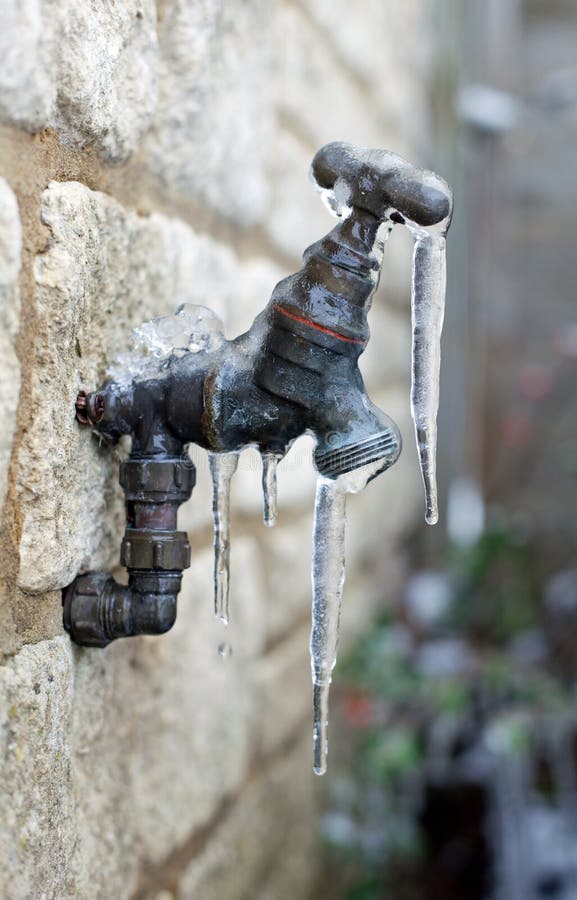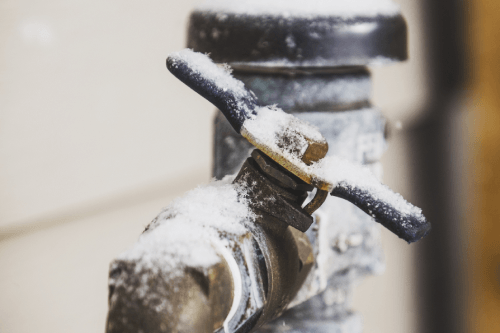Every person may have their own individual theory involving How to Prevent Your Pipes From Freezing.

Cold weather can damage your plumbing, especially by freezing pipelines. Right here's how to avoid it from happening and what to do if it does.
Introduction
As temperatures drop, the danger of frozen pipes increases, potentially resulting in costly repair work and water damage. Recognizing exactly how to avoid frozen pipes is important for house owners in cool environments.
Recognizing Icy Pipelines
What creates pipelines to ice up?
Pipes freeze when subjected to temperatures below 32 ° F (0 ° C) for expanded periods. As water inside the pipes ices up, it expands, putting pressure on the pipeline walls and potentially triggering them to break.
Risks and damages
Icy pipelines can lead to water system disturbances, residential or commercial property damage, and costly fixings. Ruptured pipelines can flooding homes and cause comprehensive structural damage.
Indications of Frozen Pipeline
Determining frozen pipes early can prevent them from breaking.
Just how to recognize frozen pipes
Search for decreased water flow from faucets, unusual smells or sounds from pipelines, and visible frost on subjected pipes.
Prevention Tips
Protecting at risk pipes
Wrap pipes in insulation sleeves or utilize warmth tape to shield them from freezing temperatures. Focus on pipes in unheated or exterior areas of the home.
Heating methods
Keep interior areas appropriately warmed, specifically locations with pipes. Open cupboard doors to allow warm air to circulate around pipelines under sinks.
Shielding Outside Plumbing
Garden hoses and exterior taps
Disconnect and drain yard hose pipes before winter. Mount frost-proof spigots or cover outdoor taps with insulated caps.
What to Do If Your Pipelines Freeze
Immediate actions to take
If you think icy pipes, maintain faucets open to ease stress as the ice thaws. Make use of a hairdryer or towels taken in warm water to thaw pipelines gradually.
Long-Term Solutions
Structural adjustments
Consider rerouting pipes away from exterior walls or unheated locations. Include added insulation to attic rooms, cellars, and crawl spaces.
Updating insulation
Purchase top notch insulation for pipelines, attic rooms, and wall surfaces. Appropriate insulation assists preserve consistent temperature levels and lowers the risk of frozen pipes.
Conclusion
Stopping frozen pipelines requires proactive procedures and quick feedbacks. By recognizing the causes, signs, and preventive measures, home owners can safeguard their pipes throughout winter.
Helpful Tips to Prevent Frozen Pipes this Winter
UNDERSTANDING THE BASICS: WHY PIPES FREEZE AND WHY IT’S A PROBLEM
Water freezing inside pipes is common during the winter months, but understanding why pipes freeze, and the potential problems it can cause is crucial in preventing such incidents. This section will delve into the basics of why pipes freeze and the associated problems that may arise.
THE SCIENCE BEHIND FROZEN PIPES
When water reaches freezing temperatures, it undergoes a physical transformation and solidifies into ice. This expansion of water as it freezes is the primary reason pipes can burst. As the water inside the pipe freezes, it expands, creating immense pressure on the walls. If the pressure becomes too great, the pipe can crack or rupture, leading to leaks and water damage.
FACTORS THAT CONTRIBUTE TO PIPE FREEZING
Low Temperatures: Extremely cold weather, especially below freezing, increases the risk of pipes freezing. Uninsulated or Poorly Insulated Pipes: Pipes located in unheated areas, such as basements, crawl spaces, or attics, are more prone to freezing. Insufficient insulation or lack of insulation altogether exacerbates the problem. Exterior Wall Exposure: Pipes running along exterior walls are susceptible to freezing as they encounter colder temperatures outside. Lack of Heating or Temperature Regulation: Inadequate heating or inconsistent temperature control in your home can contribute to frozen pipes. PROBLEMS CAUSED BY FROZEN PIPES
- Pipe Bursting: As mentioned earlier, the expansion of water as it freezes can cause pipes to burst, resulting in significant water damage.
- Water Damage: When pipes burst, it can lead to flooding and water damage to your property, including walls, ceilings, flooring, and personal belongings.
- Structural Damage: Prolonged exposure to water from burst pipes can compromise the structural integrity of your home, leading to costly repairs.
- Mold and Mildew Growth: Excess moisture from water damage can create a favorable environment for mold and mildew growth, posing health risks to occupants.
- Disrupted Water Supply: Frozen pipes can also result in a complete or partial loss of water supply until the issue is resolved.
WHY CERTAIN PIPES ARE MORE PRONE TO FREEZING
- Location: Pipes located in unheated or poorly insulated areas, such as basements, crawl spaces, attics, or exterior walls, are at higher risk of freezing.
- Exterior Pipes: Outdoor pipes, such as those used for irrigation or exposed plumbing, are particularly vulnerable to freezing as they are directly exposed to the elements.
- Supply Lines: Pipes that carry water from the main water supply into your home, including the main water line, are critical to protect as freezing in these lines can affect your entire plumbing system.
- Underground Pipes: Pipes buried underground, such as those connected to sprinkler systems or outdoor faucets, can be susceptible to freezing if not properly insulated.
https://busybusy.com/blog/helpful-tips-to-prevent-frozen-pipes-this-winter/

I'm very excited about How to prepare your home plumbing for winter weather and I hope you liked my post. Sharing is good. Helping people is fun. I am grateful for your time. Don't forget to pay a visit to our site back soon.
Get A Quote